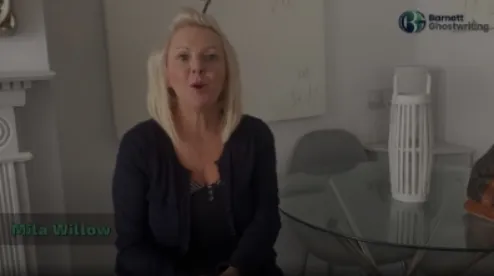
If you want a traditional publishing deal in 2025, finding a literary agent in USA is almost essential. The publishing world has become more competitive and complex than ever—new technologies, tighter submission rules, and evolving market trends mean writers must be strategic and informed.
This comprehensive guide will walk you through everything you need to know to find the right literary agent, from preparing your manuscript to signing the deal.
Why Do You Need a Literary Agent in 2025?
Before investing time in the search, understand why an agent matters:
- Access to Big Publishers – Major publishing houses like Barnett Ghostwriting, Penguin Random House, HarperCollins, and Macmillan almost never accept unagented submissions.
- Stronger Deals – Agents negotiate better advances, royalty structures, and handle subsidiary rights (film, audio, translations).
- Industry Expertise – They know editors, trends, and contracts far better than most authors.
- Career Management – A good agent isn’t just for one book—they help shape your long-term success.
Bottom line: If your goal is a traditional book deal, an agent is your most valuable partner.
Step 1: Make Sure You’re Ready to Query
One of the most common mistakes is querying too soon. In 2025, agents expect near-publishable quality before they even consider you.
For Fiction
✔ Complete your manuscript.
✔ Revise multiple times and get beta reader or professional editor feedback.
✔ Format according to industry standards:
- Times New Roman or similar font
- Double-spaced
- One-inch margins
For Nonfiction
✔ Write a strong book proposal (market analysis, competitive titles, chapter breakdown).
✔ Demonstrate a solid platform (followers, speaking experience, credentials).
Tip: Your first 10 pages matter more than ever—make them irresistible.
Step 2: Understand What Literary Agents Want in 2025
Trends shift, and what agents seek in 2025 might surprise you. Here’s what’s hot:
Fiction Trends
- Upmarket fiction with strong hooks
- Speculative thrillers and sci-fi grounded in reality
- Diverse voices and underrepresented perspectives
- Romantasy (romantic fantasy)—still booming in 2025
Nonfiction Trends
- True crime with a fresh angle
- Narrative memoirs with celebrity or viral credentials
- Self-help backed by science or strong credentials
- Current events, pop psychology, and sustainability topics
Agents are also looking for voice-driven writing and unique positioning. Your book should feel fresh, yet commercially viable.
Step 3: Build a Targeted Agent List
The key is not to query every agent you find, but to target those who love your genre.
Where to Research Agents
| Tool/Resource | Use Case |
| Manuscript Wish List | See agents’ wish lists and trending topics. |
| QueryTracker | Track responses, timelines, and organize queries. |
| Publishers Marketplace | See deals and which agents sold them. |
| Agency Websites | Official guidelines and open/closed status. |
How to Vet an Agent
✔ Recent sales in your category
✔ No upfront fees (real agents work on commission—usually 15%)
✔ Professional membership (e.g., AALA)
✔ Positive reputation (check Writer Beware for scams)
Build a Spreadsheet
Track:
- Agent name
- Agency
- Genres represented
- Submission guidelines
- Query date & response
Start with 20–30 agents as your first batch.
Step 4: Write a Standout Query Letter
Your query letter can make or break your chances. Here’s the winning formula for 2025:
Structure
- Personalization:
Show you’ve done your research:
“I saw you’re seeking psychological thrillers with morally complex protagonists…”
- The Hook:
Introduce your protagonist, conflict, and stakes in 2–3 sentences. - Book Details:
Include title, genre, word count, and comps:
[Book Title] is a [genre] complete at [word count], perfect for fans of [recent comps].
- Author Bio:
Mention credentials, platform, or relevant experience. - Closing:
Thank them and note the manuscript is complete.
Sample Query Letter
Subject: Query: THE LAST HOUR, Thriller, 90,000 words
Dear [Agent Name],
I noticed on your MSWL that you’re looking for high-stakes thrillers with female leads. I’m excited to share THE LAST HOUR, a psychological thriller complete at 90,000 words.
When Dr. Claire Benson discovers her missing patient is tied to a decades-old cold case, she must unearth the truth before becoming the next victim. As she digs deeper, she uncovers secrets that could destroy her career—and her life.
THE LAST HOUR will appeal to readers of Riley Sager and Megan Miranda. I have a degree in forensic psychology and have been featured in [publication name].
Thank you for your time and consideration.
Sincerely,
[Your Name]
Step 5: Prepare Submission Materials
In 2025, most agents use QueryManager or email submissions. Common requests include:
- First 5–10 pages pasted in email body
- 1–2 page synopsis (with spoilers)
- Nonfiction proposal (if applicable)
Always follow the exact guidelines—failure to do so often means instant rejection.
Step 6: Submit Strategically
- Start with 5–8 agents first.
- If you get no requests, revise your query and opening pages.
- Never query multiple agents at the same agency (unless allowed).
Average response time: 2–12 weeks. Use QueryTracker to monitor trends.
Step 7: Avoid Common Mistakes
Many queries fail for avoidable reasons. Here are some of the biggest pitfalls:
- Sending generic queries with no personalization
- Ignoring submission guidelines (wrong file type, missing materials)
- Querying before the manuscript is finished or polished
- Using outdated comparable titles or none at all
- Following up too soon or too aggressively
Professionalism matters. Agents want to work with writers who are respectful and patient.
Step 8: Handle Rejections Gracefully
Rejection is normal. Do:
✔ Thank the agent if they provide feedback
✔ Keep querying
✔ Revise if you see a pattern in rejections
Step 9: When You Get an Offer
If an agent offers representation, congratulations! But don’t rush to sign immediately. Ask questions about their editorial approach, submission strategy, and communication style. Find out how they handle subsidiary rights like foreign sales and film options. Request to see the agency agreement and read it carefully.
Once you accept an offer, notify other agents who have your query or manuscript. Give them a week to respond before you make your final decision.
Step 10: Stay Persistent
Some writers sign after 20 queries. Others after 100. The key is persistence, professionalism, and continuous improvement.
Timeline: From Query to Representation
| Stage | Timeframe |
| Manuscript prep | 3–6 months (post-draft) |
| Agent research | 2–3 weeks |
| First query batch | Immediate |
| Requests & responses | 2–12 weeks |
| Offers & negotiations | 1–3 weeks |
Checklist: 10 Steps to Finding a Literary Agent
✔ Finish and polish your manuscript
✔ Research agents who rep your genre
✔ Verify legitimacy (AALA, sales history)
✔ Write a professional query letter
✔ Prepare synopsis and sample pages
✔ Submit to 5–8 agents first
✔ Track responses in a spreadsheet
✔ Handle rejections professionally
✔ Ask smart questions when offered representation
✔ Sign after reviewing the contract carefully
Final Thoughts
Finding a literary agent in 2025 requires strategy, research, and persistence. With the right preparation and a targeted approach, you can land an agent who believes in your work and helps you secure a publishing deal.
Remember: great writing opens the door—but professionalism and persistence keep it open.
Top 10 FAQs
1. Do I need an agent for self-publishing?
No—agents are for traditional publishing.
2. Can I query multiple agents at once?
Yes, but not multiple agents in the same agency (unless allowed).
3. What’s the standard commission?
15% domestic, 20–25% foreign/subrights.
4. Should I pay for an agent’s services?
No. Real agents work on commission.
5. How many queries should I send?
Start with 5–8, then expand.
6. How long should a query letter be?
Under 350 words.
7. Can I send illustrations for my children’s book?
Yes, if you’re an illustrator. Otherwise, text only.
8. Should I mention my age?
Not necessary.
9. Do agents expect comps?
Yes—pick 2–3 recent books.
10. Can I query before finishing my novel?
No—fiction must be complete.
Disclaimer: The publishers listed here are provided for informational purposes only. We are not affiliated with these publishers and do not guarantee manuscript acceptance. We only provide professional book editing, marketing, and formatting services to help authors prepare their work for submission and improve their chances of acceptance. Always verify submission details on the publisher’s official website before applying.





